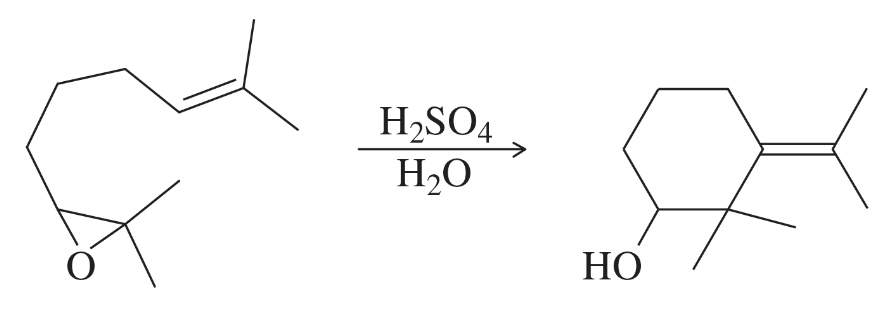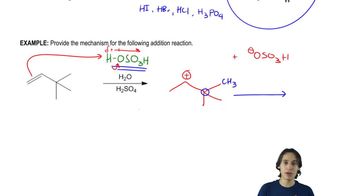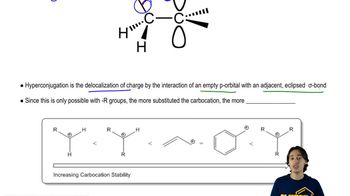Predict the product(s) that would result when the alkenes are allowed to react under the following conditions: (vii) 1. mCPBA 2. H2SO4, H2O
(k)

 Verified step by step guidance
Verified step by step guidance Verified video answer for a similar problem:
Verified video answer for a similar problem:



 4:34m
4:34mMaster Acid-Catalyzed Epoxide Ring-Opening with a bite sized video explanation from Johnny
Start learning